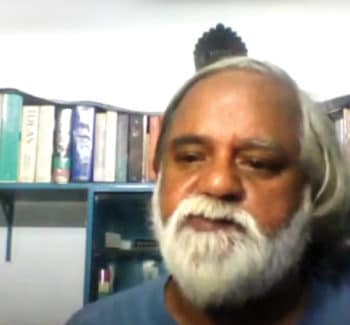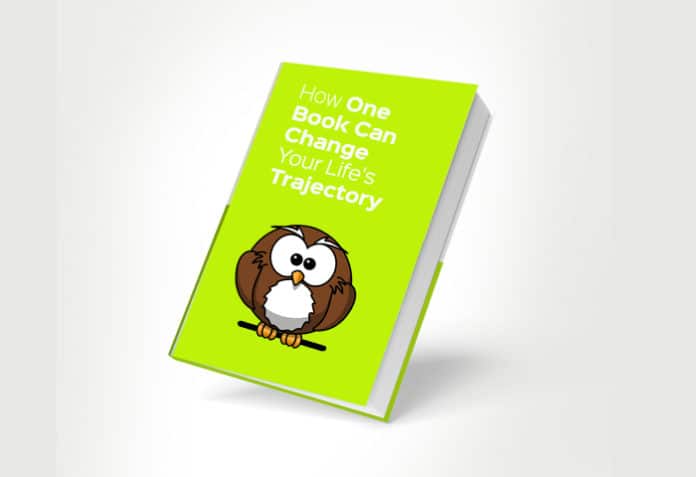An unexpected e-mail popped up in my mailbox the other day. It read: “You may or may not remember me. We interacted briefly several years ago. I am now trying to contact ‘Thaths’ Chandrasekhar of Netscape, and a Linux guru. The email ID that I have seems defunct. How can I contact him? Please help me.” That email was from an intellectual who has great love for the open source world. Read on to know more about this veteran who says he is still learning.
For those who came in late, as the good ol’ Phantom comics would say, Netscape (earlier Mozilla) was the American company that created an early, widely-used Internet browser.
In the early 1990s, a Goa University friend, Prof Gurunandan Bhat used this browser to demonstrate to us the first-ever pages we saw on the Internet. It seems like yesterday, but that was almost three decades ago.

To encounter the potential of this “online library on your desktop” was quite something then. But Netscape subsequently lost out to Internet Explorer. In turn, IE succumbed to … and so the story goes on. But, at one point of time, Netscape indeed had a 90 per cent share of the browser market.
And that was where ‘Thaths’ worked.
Minor cult figures
During the early days of the Linux/ILUG campaigns across India (this was the late 1990s), the diaspora working in tech firms worldwide were treated as minor cult figures back home. Everyone looked up to them. Thaths was one such figure.
The mail mentioned above came from Prof Parthasarathy, better known in the desi FOSS world of the 1990s as ‘Doc Partha’. He was quick to say, then and now, “Call me Partha.”
In a few days, Thaths was indeed found! But this search helped me to run across Dr Partha himself — after years. No, actually after two full decades.
Doc Partha explained the context, and why the search came about: “I got my first book on Linux by begging for it. Thaths sent it to me.” This mathematician with a PhD in the subject has focused for over two decades on promoting free and open source software (FOSS) computing.
In his time, he got known for his unique idea of ‘Linux in a teaspoon’. “I never stopped; but became addicted to Linux. I’m what you would call a Linux fanatic,” he said in an interview with OSFY last month. He still sees proprietorial code as “untouchable”. No biases, but just a policy for which he explains his rationale.
Says Doc Partha: “I wish to help my students discover mathematics and computer science.” He lives in the city of Secunderabad, and adds with some pride: “I share my birthday with George Boole (mathematician, the father of Boolean algebra).”
Doc Partha has a background in discrete mathematics, graphics, graph theory, logic, crypotgraphy, number theory and “everything related to the computer.” In all of these fields, he says he finds “plenty of tools on Linux.”
Some strong reasons…
There are strong reasons for this, of course.
The sharing system [in the FOSS world], the brotherhood, the fact that nobody’s cheating nobody … or that I’m not going to push something just to make money out of you — these are some of the “absolutely honest and clean” values of GNU/Linux which he finds amazing. “Honest and clean are the right words for Linux,” says he.
As he puts it: “If you really want to learn computer science, you will not learn anywhere else other than via Linux. It teaches you a whole lot. Every day.”
Rip Van Winkle
When we reminisced recently, both of us jokingly said we felt like Rip Van Winkle. Coming back to civilisation twenty years later, and being surprised to note how the “world has changed.” Today, says Partha, everyone swears by Linux. People, particularly those in the academic field, “have taken well to FOSS. They want something reliable.”
He argues: “People once thought that if it was free, there must be something wrong with it. Today almost everybody I meet swears by it and says it’s either Linux or nothing. Particularly those in the academic field have a lot of respect and admiration for Linux. They want something reliable and honest, which they can copy and freely give to their students.”
“Sharing is a very human emotion. Everybody wants to share. Even when sitting with people you do not know in a train, sharing is a human instinct. So why should it not be so with computer science, and with software?” he asks.
How does he see the strengths and weaknesses of the two-decade-old campaign in India? He quips: “I would not say we’ve failed. But we have not learnt how to sell ourselves. Basically, Linux people are poor sales people.”
He remembers Naidu, who worked for AT&T, and brought him a set of magazines and Linux distros. “The first distro I installed with my own hands was Slackware, given to me by Naidu. It was Kernel 1, maybe some 25 years ago. Slackware was a complete no-graphics distro.”
We spoke about those who had shaped the FOSS world in India then. Among others, Atul Chitnis, Raj Mathur, Prof G. Nagarjuna, Prakash Advani, expat Indians in Singapore and Australia, and even a Hindu priest who was also a Debian hacker in the US!
He recalls Prof Rajeev Sanyal of IIIT Hyderabad. “I had a CD but could not share it with him, as I didn’t have a CD burner (which were rare to come by then). So Prof Rajeev (and others wanting to borrow it) would send their men, and the CD would crisscross Hyderabad because someone or the other needed to share the software. That’s how we started it all. It’s an unbelievable story. If you want something badly enough, there are people who will help you. I’m happy I went through all this.”
Adult education
Was he then one of the first Linux users in the country? “I don’t think so,” he says with modesty. But he believes he was one of the first Linux learners. “Talk about adult education, and I’m a good example,” says he, with a laugh.
He recalls the youngsters who taught him and are now in New Zealand. Doc Partha says his ‘teacher’ in Linux was Srinivasan, a young man two years junior to his own son.
Punched cards
Dr Partha did his PhD thesis during the punched-card days, from the Institut National Polytechnique de Grenoble, France, located on the France-Italy-Switzerland border. “I have punched cards right here, at home. To write a 200-line FORTRAN project took me one box of punched cards,” he recalls.
That was in 1980, after which he worked in China. He’s been in the software industry since the 1980s — in corporations, as an independent entrepreneur, and a university teacher. Partha has also taught in France, Macau, Thailand, Indonesia, Germany, Spain, Poland, Nepal, China, and India. Wow! His last assignment was in 2015, in Kathmandu, the scenic city he left after the major earthquake that very year.
In Kathmandu, he taught cryptography for four years. Cryptography’s best tools are in Linux, he says.
“In fact, I started life (in computing) with a Multics machine,” he notes. Linux follows a POSIX (Portable Operating System of UNIX) standard. This is a family of standards specified by the IEEE Computer Society for maintaining compatibility between operating systems. On its first page, the book outlining this standard acknowledges some 200 contributors. His is the only India-based Indian name there, he says proudly.
‘Linux in a Teaspoon’
One of Doc Partha’s much-remembered works is called ‘Linux in a Teaspoon’. It is an introduction to all aspects of Linux. “It starts by saying, ‘Don’t use Linux if you think it’s not user-friendly, or if you want to play games.’ I began that work by giving people ten reasons why they should not use Linux,” he says.
Back then, tonnes of bytes of GNU/Linux resources were packed into a single CD. It contained all the stories, links and downloaded material related to Linux. “In those days, the Internet was not popular [or easy to access in countries like India]. So I had to make a CD, and distribute it free of cost to everyone around. Whichever course I conducted, I would distribute the CD free of cost.”
This was a simple-yet-radical idea in its time — collating and freely sharing knowledge, in a way that made it even easier to spread and proliferate it.
His idea got written about in newspapers in Bangalore (as the city was known then), Karachi, and elsewhere. He recalls that a news story in the Deccan Herald drew attention to his contributions, as did another in The Dawn.
He then started getting responses from a series of obviously foreign names. He learnt why this was happening only when he asked what had triggered their interest — it was the newspaper articles.
Hacking for learning
Doc Partha’s ebook on LaTeX — the free and open source software system for document preparation — has been used in more than 65 countries, spanning six continents. His goal is to promote “hacking for learning” through his books and publications, which he shares under a Creative Commons (CC-BY-SA) license. The latest version of this LaTeX generated document is available via https://drpartha.org.in/.
He takes pride in being a “regular supporter, promoter and practitioner of FOSS,” and has contributed to international efforts to build this volunteer-driven system. His contributions feature in major GNU/Linux ‘distros’ (or distributions) worldwide, and have been translated into nine languages — Japanese, Dutch, French, Turkish, Russian, Spanish, German, Czech and Bulgarian.
Among other feathers in his cap are being a senior member of IEEE (USA) and a life fellow of IETE (India). He was twice decorated by the IEEE (USA) with international awards, for outstanding contributions to the profession.
But that’s not all. In his spare time, he provides free advice and technical assistance for making handicapped-accessible buildings, structures and facilities. He is a serious promoter of eco-friendly, vermiculture-based organic farming, and an active campaigner and volunteer for organ donation.
Doc Partha has authored several research publications, popular articles and, in their time, educational CD-ROMs. He was an editor of the international journal ‘Engineering Applications of Artificial Intelligence’ (Elsivier, UK), and a reviewer for the Practex Journal, published by the TeX Users Group.
He recalls his “begging” for a book on Linux, by writing to people whom he “didn’t even know.” The book that Thaths sent him is still on his table. “I’m still learning from this book,” says the 72-year old.
“It has been a long and interesting journey. Even today, I keep learning something new every day,” he notes.















































































